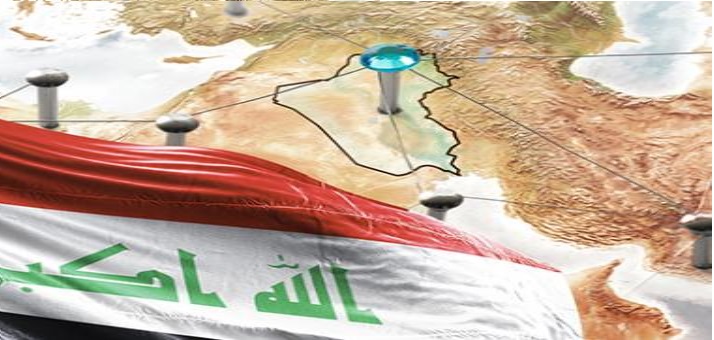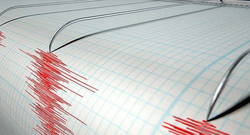Iraq's high-stakes dilemma: to escape the vortex of regional conflicts

Shafaq News/ The recent developments in the region indicate an alarming increase in regional and international conflicts centered around Iraq, raising concerns among specialists.
Political analysts and officials said the frequency of the conflicts is on a steep rise, prompting Iraq to formulate a comprehensive project to rescue the nation from becoming an arena for settling scores.
Dragging Iraq into the Quagmire of Conflicts
In an interview with Shafaq News Agency, political analyst Yassin Aziz highlighted Iraq's efforts to "distance itself" from the escalating regional conflicts.
Aziz warned the "influential political actor in the country finds itself under the influence of regional and international parties that seek to settle their scores on Iraqi soil," stressing that such influence could draw Iraq into a "quagmire of conflicts."
Aziz urged the Iraqi Prime Minister, Mohammad Shia Al-Sudani, to take serious measures to prevent the nation from being "entangled in these disputes."
Iraq Pays the Price of International Conflicts
Simultaneously, Dr. Abbas Al-Jubouri, Director of the Al-Rafid Center for Media and Strategic Studies, agreed with Aziz, stressing the need for Iraq to "maintain neutrality" in the face of international political conflicts. He pointed to the recent US attacks on Iraqi cities and Popular Mobilization Forces headquarters as evidence of Iraq's vulnerability in the current regional scenario.
Al-Jubouri emphasized that Iraq, "as a pivotal and strategic country, should make independent decisions free from external pressures."
Behavior of Armed Factions
Professor of Political Science Dr. Moataz Al-Najm highlighted the neutral position of the Iraqi government, which has been compromised by armed factions violating truces.
Al-Najm called for diplomatic solutions, emphasizing the importance of a "purely governmental will to redefine Iraq's relationships with the United States and regional countries." underscoring the necessity for armed factions to align with "a truly national project, free from external agendas."
Discussing the economic dimension, Al-Najm emphasized the United States' control over the dollar in Iraq and its role in "protecting the monetary currency through the US Federal Reserve." He urged the Iraqi government to address these issues within a comprehensive national framework, considering the national interest.
"Iraq's support for the Palestinian cause should not come at the expense of national interest, as there are priorities in dealing with crises. There are secondary, basic, and higher interests." He pointed out.
Al-Najm stressed, "Preserving Iraq's security and sovereignty is considered a supreme interest for the country, and groups must start from this perspective to be able to determine the nature of the interaction and the nature of the relationship between them and all countries or international actors in the region."
Position of Arab Countries
Meanwhile, Abdul Qader Al-Nayel, a researcher in political affairs, addressed the division among Arab countries between their peoples and ruling regimes.
Al-Nayel explained to Shafaq News Agency that "Iranian dominance over Iraq" is a result of the "official Arab withdrawal from the country after the occupation." Although "the United States also played a role in preventing Arab countries from having a say in Iraqi affairs since 2003 for cooperating with Iran, it is not justified to leave Iraq in this manner."
He warned, "The current conflict is dangerous, and the statements issued by the Arab League condemning Iranian airstrikes and others are insufficient. The situation requires the crystallization of a project to save Iraq from becoming a hotbed for regional and international conflicts whose pace is escalating dramatically."
"If Iraq burns while you are watching, the fire will reach you, and no one will be safe from the outbreak of conflict." He added.
Proxy War
In parallel, Dr. Azhar Al-Gharabawi, a researcher in international relations, delved into the proxy war dynamics.
She explained to Shafaq News that targeting countries not directly involved signifies the emergence of a proxy war that has begun to materialize as a new model for the Cold War that was taking place in the world between the eastern and western poles, through countries where the war takes place, as it took place in Cuba and some African countries and others. It is a proxy war whose repercussions are borne by the countries in which the main state's arms extend, such as Syria, Iraq, Yemen, and Lebanon, in which Iran's arms are remarkably broad."
"The US administration adopted a doctrine after the September 11, 2001 attacks, allowing it to strike any hostile parties perceived as threats to its national security or the security of its citizens. Congress, therefore, authorizes the American President to use force under these conditions."
She further elaborated, "Iran has actively worked to shift the conflict's arena away from its own territory, focusing on Iraq. Iranian foreign policy considers the security and stability of its neighboring countries as integral to its national security. This rationale has been used to direct and manage the conflict in lands beyond its own, particularly in Iraq."
Highlighting the implications of this proxy war at the local level, she emphasized, "This proxy war underscores the weakness of the Iraqi government and its challenges in front of the Iraqi population. This situation is detrimental to the political process in Iraq, as it indicates that the country is a target. At the same time, the Iraqi security services struggle to protect both internal and external security."
Iraq is capable of protecting itself
Among all these opinions, Major General Tahseen Al-Khafaji, spokesman for the Iraqi Joint Operations Command (JOC), reassured that Iraqi security forces are "capable of protecting the nation, its goals, people, borders, and fortunes."
Al-Khafaji further informed Shafaq News Agency, "Following the victory over this organization (ISIS), the Iraqi armed forces shifted their focus to important issues. The first was securing the borders, which was accomplished with Syria. Significant efforts are underway towards securing the Turkish and Iranian borders."
He explains, "The Iraqi security forces have become more equipped and professional, especially after gaining experience in the liberation battles. Additionally, they possess advanced air force capabilities, and there is a noteworthy intelligence effort across all security and intelligence agencies."
The resolution of whether the region is trending towards a significant settlement or a major conflict remains elusive. The anticipation of diplomatic discussions, military actions by the Axis of Resistance, and the official Israeli response to the truce proposal adds to the ongoing uncertainty, contributing to a highly concerning situation.





